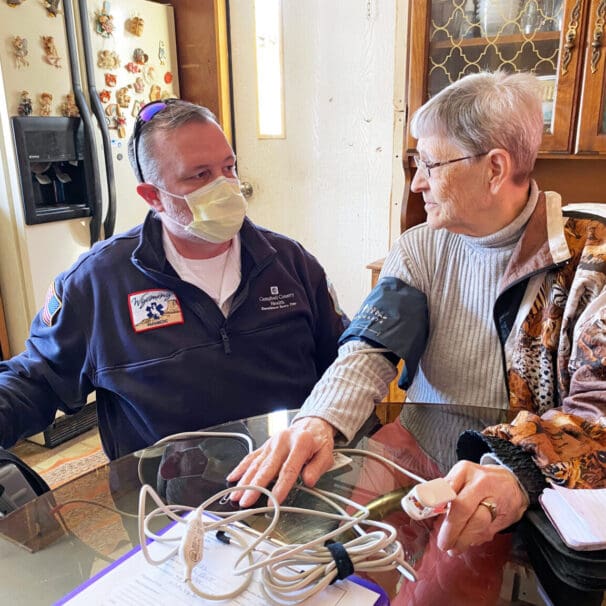HealthProviders DB is a comprehensive database of healthcare providers, including a complete directory of all Community Paramedics.
Emergency Medical Service Provider Healthcare Taxonomy Code 146E00000X
As of today, the following are the total number of Community Paramedics nationally, in your State, and near your location.
Select a State below to view the list by State. Additionally, you can narrow the list by city, among other options, from the Filter Panel, which you can open by clicking the vertical ellipses ⋮ in the upper right corner of the app.
Alaska – Alabama – Armed Forces Pacific – Arkansas – American Samoa – Arizona – California – Colorado – Connecticut – District of Columbia – Delaware – Florida – Federated States of Micronesia – Georgia – Guam – Hawaii – Iowa – Idaho – Illinois – Indiana – Kansas – Kentucky – Louisiana – Massachusetts – Maryland – Maine – Marshall Islands – Michigan – Minnesota – Missouri – Northern Mariana Islands – Mississippi – Montana – North Carolina – North Dakota – Nebraska – New Hampshire – New Jersey – New Mexico – Nevada – New York – Ohio – Oklahoma – Oregon – Pennsylvania – Puerto Rico – Palau – Rhode Island – South Carolina – South Dakota – Tennessee – Texas – Utah – Virginia – Virgin Islands – Vermont – Washington – Wisconsin – West Virginia – Wyoming
Medicare
The following are the total number of Community Paramedics who accept Medicare in your State, the number who have opted out of Medicare, and the total number excluded from participation in Medicare nationwide.
The diagram below shows all the Community Paramedics across the country, represented by blue bubbles. The larger the bubble, the greater the concentration of providers in that area. Red bubbles represent Medicare-excluded providers, with the larger bubbles indicating a higher percentage of excluded providers in that region. You can change the bubble size to be based on exclusions from the Size menu.
What do Community Paramedics do?
Community paramedics provide non-emergency healthcare in homes and other community settings, including performing wellness checks, managing chronic conditions, providing health education, connecting patients with resources, and conducting post-hospital follow-up care to improve public health and reduce unnecessary emergency department visits.
In-Home Care & Assessments
- Conduct non-urgent home visits for patients with chronic conditions.
- Assess a patient’s overall health and monitor vital signs, including blood pressure, heart rate, blood glucose levels, and oxygen saturation.
- Provide direct care, including wound care and medication management.
Chronic Disease Management
- Help patients with conditions such as diabetes, heart failure, and asthma manage their illnesses effectively.
- Educate patients and caregivers on disease management techniques, lifestyle modifications, and medication adherence.
Connecting Patients with Resources
- Serve as a bridge to other healthcare services by referring patients to primary care physicians, mental health services, and social support programs.
- Collaborate with public health agencies, home health agencies, and other providers to coordinate care.
Post-Hospital Care
- Complete follow-up care after a hospital discharge, ensuring patients understand their instructions and have the necessary support at home.
- Monitor patients to prevent complications and reduce the likelihood of hospital readmissions.
Health Education & Prevention
Provide health education and promote community wellness.
Help identify and address social determinants of health, such as housing instability or food insecurity, by connecting patients to community resources that can provide support.
How It Works
Community paramedics operate under the supervision of a physician or advanced practice provider and work in a care model that allows for expanded roles beyond traditional emergency response.
Their goal is to provide patient-centered care outside of the emergency department, improving health outcomes and building trust within their communities.

